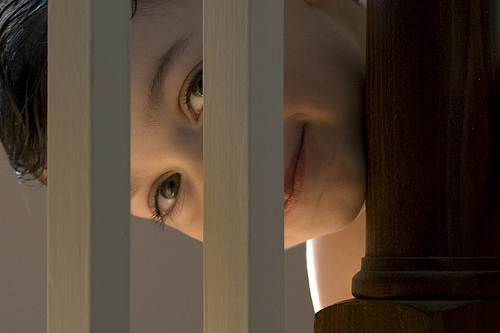Ellie Ivanova Ponti

Photo: woodleywonderworks
The best time to learn a new language is around teenagerhood and beyond. Yes, learning at a younger age is always an advantage and young children absorb a new language faster if they are immersed in the respective culture. But they also forget it easier if they are removed from it. Their language abilities disappear just as their childhood memories fade and a curtain is drawn between the cultures of childhood and adulthood, through language.
An adult’s language learning experience is much more sophisticated. However, there is something adult learners almost always miss: again, the culture of childhood. Have you noticed that bilingual parents who raise their children bilingual always find it easier to speak to their kids in their own childhood language? It carries the emotional connection associated with a parent-child relationship and also contains the vocabulary of what the world of a child is made to be.
On the other hand, however sophisticated an adult language learner is, she or he will not have acquired the baby talk, the playground dialogues, the children’s rhymes and stories typical for that specific culture. As someone who first started learning Spanish in school, I am not familiar with the rhymes and games children play and with the culture-specific children’s mythology. A Spaniard friend of mine was surprised that I had not heard of something as basic as the rhyme “Los papás van corriendo” or the traditional games like Patata caliente.
Childhood language is also more difficult for an adult learner. It may seem that baby talk is the most logical and elementary first step into a new culture. But it is not. Try starting learning a new language using the traditional children’s books in that language and you’ll experience that curtain between childhood and adult culture that will block your progress. As elementary as your goals are, you can’t start learning German with the first-grade primer German kids use. It’s a different world constructed with unfamiliar, children’s formulae, common places and topoi.
Hopefully this is not a pessimistic comment on the definitive separation of children and adults in two different cultures. But it is an invitation for adults to learn children’s culture and language and yes, pay attention to what kind of world we are constructing for them, just how starkly separate it is from ours. And be cognizant of the effort it takes or sometimes of the culture shock involved for them to just grow up. And how isolating can it be for them to be children.

Photo: woodleywonderworks
You can read other articles by Ellie Ponti on her blog.











No comments so far ↓
Nobody has commented yet. Be the first!
Comment